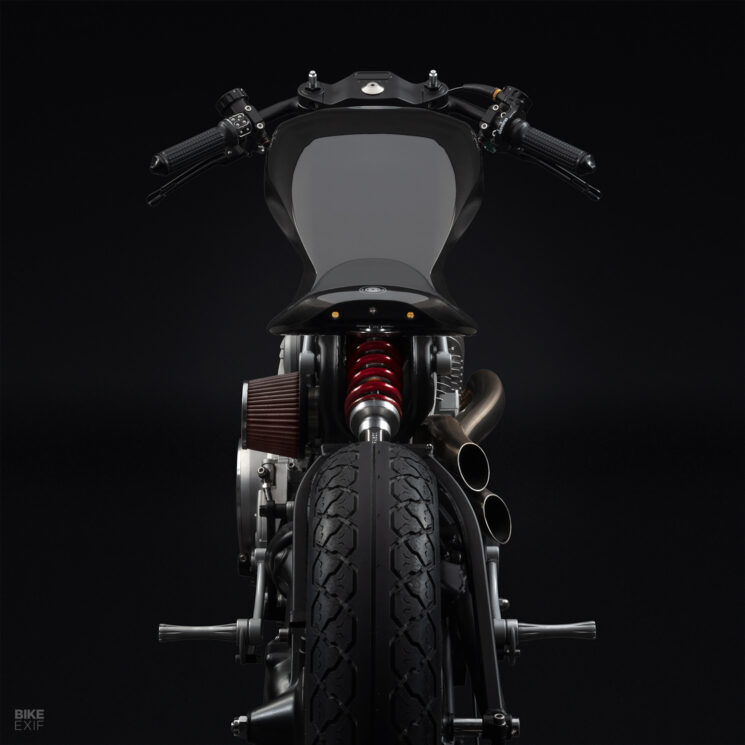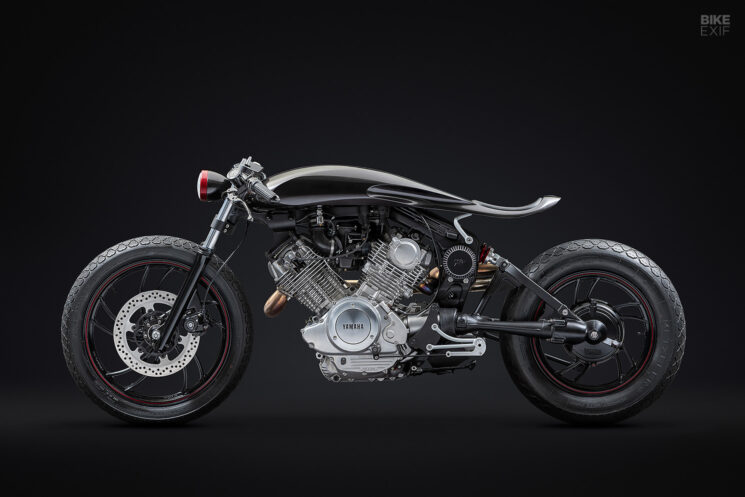
They say that you can’t make a silk purse out of a sow’s ear, but no one bothered telling Earth Motorcycles that. The Slovakian custom shop has just built an elegant and somewhat alluring café racer out of the most unlikely donor; a Yamaha Virago.
It’s not that Yamaha Virago café racers are uncommon—they’re just really hard to get right. In stock trim, the Virago boasts one of the most awkward layouts in modern motorcycling. So it takes a shrewd approach, and a little left-field thinking, to massage it into shape.
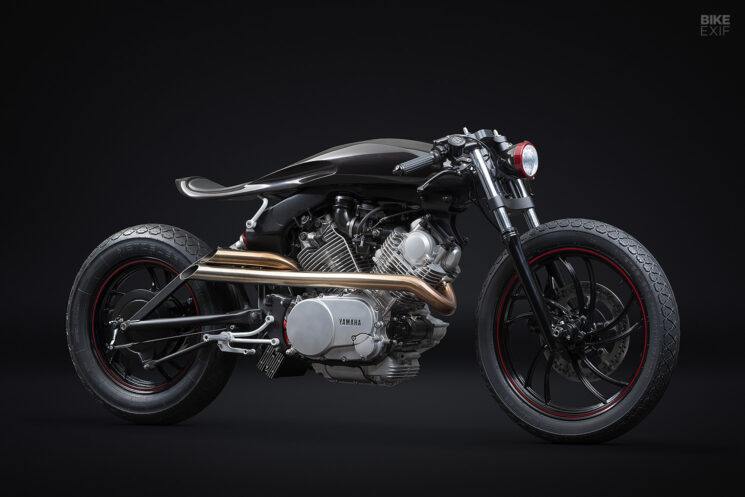
Earth Motorcycles circumnavigated those challenges, by choosing to highlight an unusual aspect of the oddball Virago. This build is all about what attracted Earth’s founder, Vlado Dinga, to the bike in the first place—its motor. Or, more specifically, the way the motor is mounted.
“Obsessed with the idea of a V-twin engine mounted from above, giving it a somewhat levitating feel, I decided on a Yamaha XV920 Virago as a donor bike,” Vlado tells us. Set on building a café racer—but also wanting to steer clear of typical café racer designs—he decided to cover the Virago in wispish bodywork that would accentuate its stonking V-twin mill.
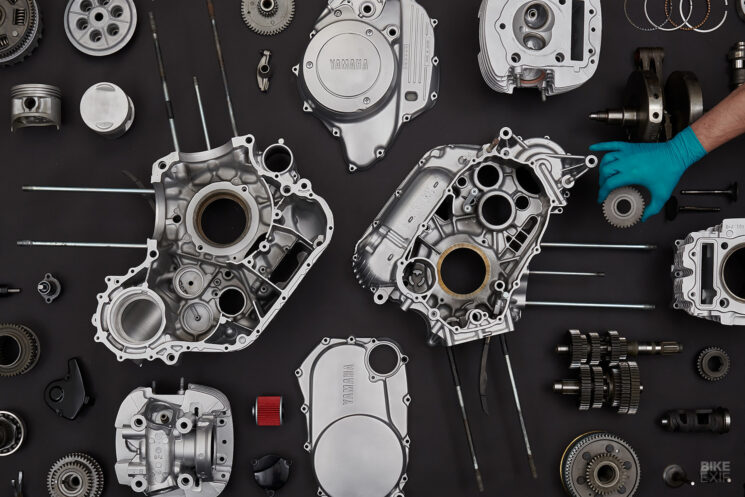
“With that idea in my head,” he continues, “I approached an industrial designer, Konstantin Laskov from Sofia, Bulgaria. My design brief was to come up with a subtle shape, contrasting with the big engine, and respecting the core of the bike—the floating engine and the curved frame. On a philosophical level, the request was to follow three keywords: freedom, wind, and air.”
“Konstantin came up with a few sketches and finally delivered a simple idea of a single tight curve, with a peak above the engine and two tangents at the wheels. This became our design mantra.”
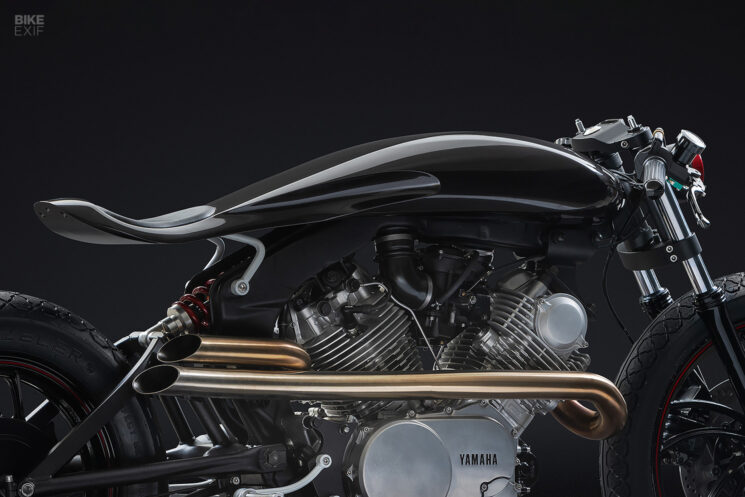
Vlado and Konstantin bounced some ideas around, eventually settling on a monocoque body. With the design fully rendered in 3D, it was time to bring it to life.
This all transpired a few years ago, before Earth Motorcycles was fully established. Around that time, Vlado’s fabricator friend, Aleš Tomis, moved from England back to Slovakia. Vlado brought him onto the Virago project and the two joined forces.
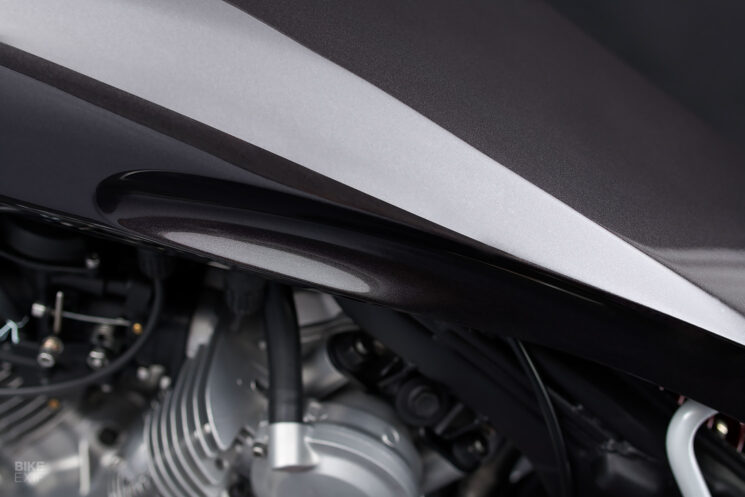
Taking the svelte bodywork from concept to reality was no walk in the park though. The guys wanted to use a production method that they could replicate, so they experimented with milling, casting, and 3D printing the body. In the end, they settled on good old-fashioned fiberglass, using a positive wood mold to create the final negative fiberglass mold.
That negative mold was then used to lay up the gorgeously sculpted one-piece body. It might not hold a lot of fuel or offer a lot of seating space, but it sure looks incredible.
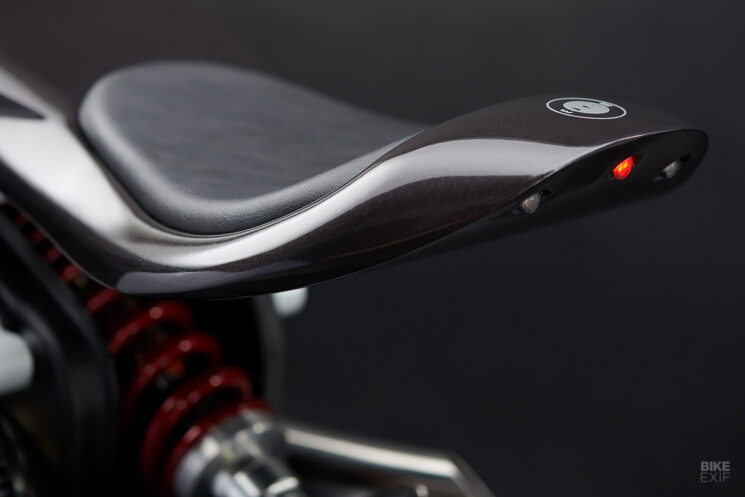
A flush-mounted gas cap does duty up front, while a slim seat pad sits neatly at the back, tucked into a recess in the bodywork rather than just slapped on top of it. Three LEDs are embedded into the tail; one each for the taillight and turn signals. Everything was carefully considered—from the deep paint to the subtle Earth branding.
The subframe that supports the Virago’s new body is equally graceful. A pair of handmade brackets mount directly to the bike’s stamped frame, arching upwards to support a baseplate under the rear half of the monocoque. That design is mirrored lower down in the custom-made rear sets.
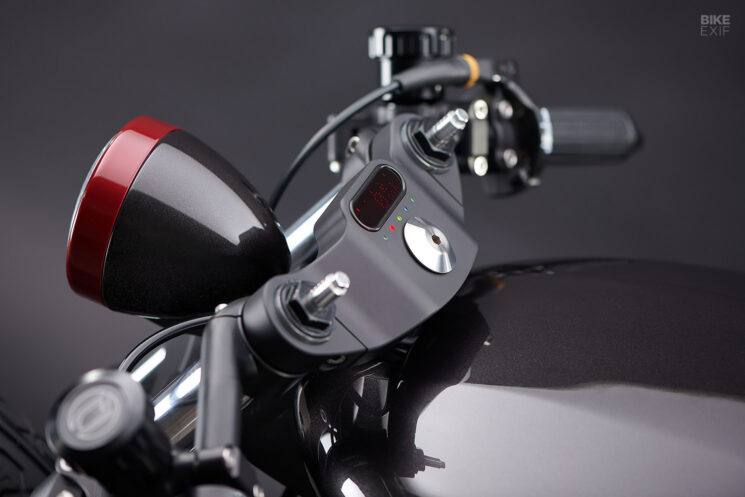
Moving to the cockpit, Earth rebuilt everything around a set of custom yokes. A Motogadget speedo sits flush in the top yoke, just above a row of LED warning lights. New clip-ons are fitted with Motogadget grips and switches, alongside upgraded levers and reservoirs, and LED bar-end turn signals.
The real trick here is that the flowing bodywork isn’t at odds with the Virago’s frame and boxy swingarm (which, admittedly, has been altered somewhat). That’s partly down to Earth’s judicious use of finishes. Most of the hard parts have been blacked out, while the freshly rebuilt engine shines as the centerpiece of the build.
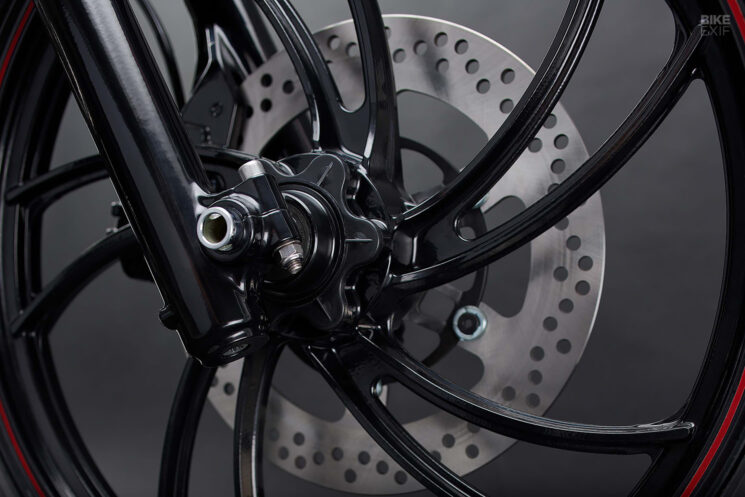
Vlado took another brave decision, by retaining the Virago’s OEM wheels instead of swapping them for something a little less 80s. “During design research,” he says, “I came across dozens of modified XVs, but none of them used the original alloy wheels (except for some light shed modifications, naturally). But to me, the wheels had something unique in their structure and design.”
In the end, Vlado realized that the only thing he didn’t like about the stock wheels, was the inner ridges that ran between all of the spokes. So the guys milled those out, then finished the wheels in black with red accents.
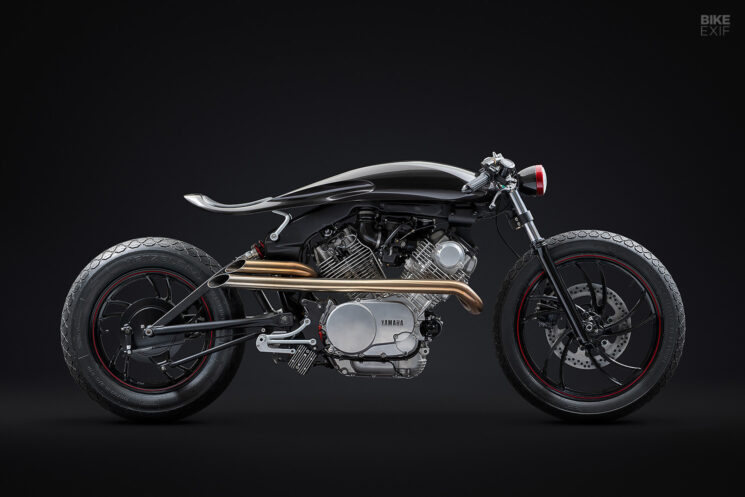
There are other slick details strewn throughout the bike—like the way Earth has mounted a beefy K&N filter directly to the in-frame ‘airbox.’ Even the drag-style exhaust system has a rationale behind it. It’s designed to juxtapose the curved nature of the bodywork, with a philosophy of the bodywork being the sky and the exhaust being the earth.
“The pipes became a central visual element of the bike and gave the bike its name, ‘Fujara.’ In Slovak culture, a fujara is a traditional straight flute, used mainly by shepherds.”
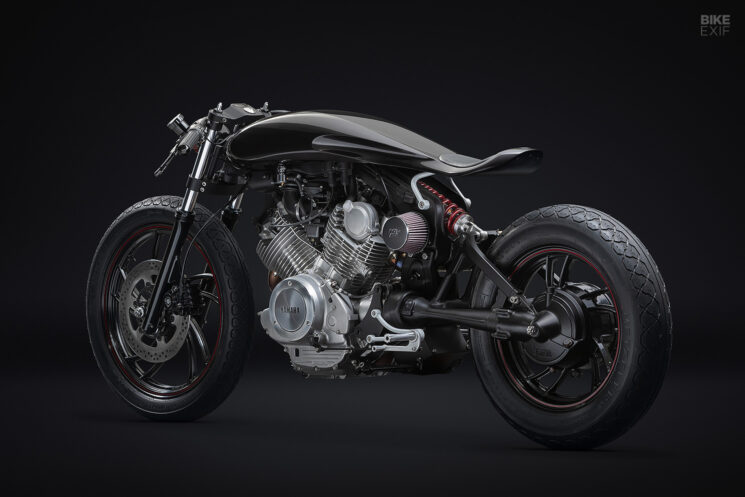
No doubt this Virago is louder than a Slovakian flute—and it’s unlikely to be particularly comfortable to ride for more than a short blast. But it sure is nice to look at.
Considering how radically Earth Motorcycles has transformed the venerable Virago, we’re keen to see what other oddball donor bikes they can work their magic on. Any requests?
Earth Motorcycles | Images by Marian Svitek
